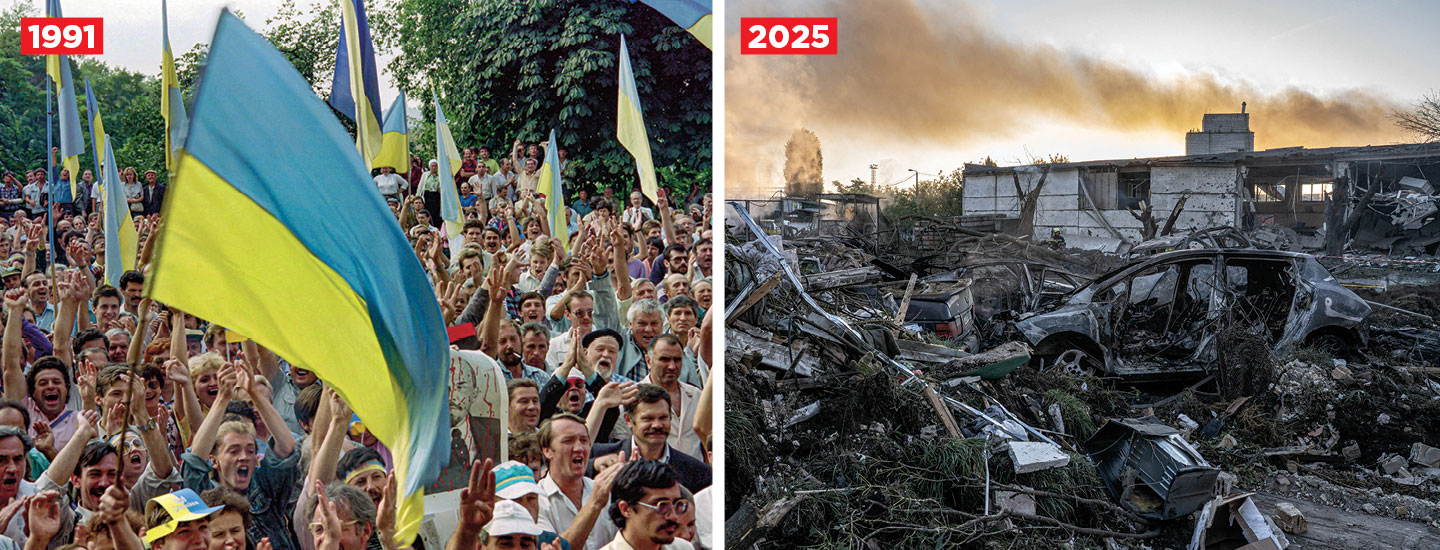How else did the fall of the Soviet Union affect you?
After independence, the whole world became open to me. To go abroad while part of the Soviet Union was impossible for the average Ukrainian. A few years after Ukraine became independent, I got a passport. Traveling became about having enough money to pay for a trip, not about getting permission from the government to take a trip. I remember getting a job and taking my first trip to Italy. If the Soviet Union hadn’t collapsed, that would have been impossible.
After everything Ukraine has been through, how did you feel when Russia invaded the country in 2022?
When Ukraine became independent and the whole process after, I felt only good about it, never nostalgic about being part of the Soviet Union. This was an opportunity for us to travel, learn English, build a career, talk openly, and have a free press.
But when Russia invaded Ukraine in 2022, I felt scared and angry. My big fear is that Russia will occupy Ukraine, and Ukraine will not exist anymore.
Freedom is not a meaningless word for Ukrainians. The main right they have is the freedom to decide what direction to choose for their country.
Note: This is an edited, condensed version of Sonya’s interview.

